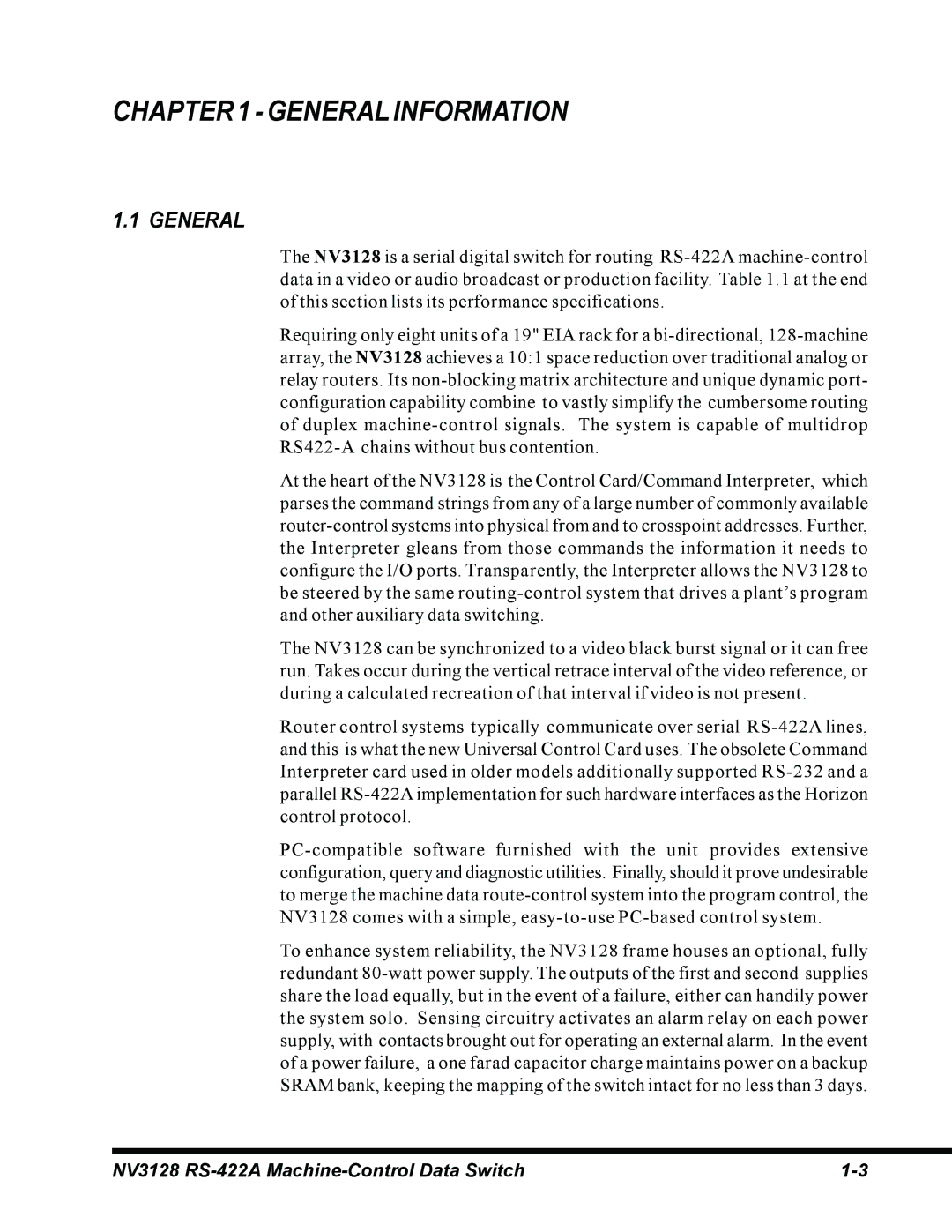CHAPTER 1 - GENERALINFORMATION
1.1 GENERAL
The NV3128 is a serial digital switch for routing RS-422A machine-control data in a video or audio broadcast or production facility. Table 1.1 at the end of this section lists its performance specifications.
Requiring only eight units of a 19" EIA rack for a bi-directional, 128-machine array, the NV3128 achieves a 10:1 space reduction over traditional analog or relay routers. Its non-blocking matrix architecture and unique dynamic port- configuration capability combine to vastly simplify the cumbersome routing of duplex machine-control signals. The system is capable of multidrop RS422-A chains without bus contention.
At the heart of the NV3128 is the Control Card/Command Interpreter, which parses the command strings from any of a large number of commonly available router-control systems into physical from and to crosspoint addresses. Further, the Interpreter gleans from those commands the information it needs to configure the I/O ports. Transparently, the Interpreter allows the NV3128 to be steered by the same routing-control system that drives a plant’s program and other auxiliary data switching.
The NV3128 can be synchronized to a video black burst signal or it can free run. Takes occur during the vertical retrace interval of the video reference, or during a calculated recreation of that interval if video is not present.
Router control systems typically communicate over serial RS-422A lines, and this is what the new Universal Control Card uses. The obsolete Command Interpreter card used in older models additionally supported RS-232 and a parallel RS-422A implementation for such hardware interfaces as the Horizon control protocol.
PC-compatible software furnished with the unit provides extensive configuration, query and diagnostic utilities. Finally, should it prove undesirable to merge the machine data route-control system into the program control, the NV3128 comes with a simple, easy-to-use PC-based control system.
To enhance system reliability, the NV3128 frame houses an optional, fully redundant 80-watt power supply. The outputs of the first and second supplies share the load equally, but in the event of a failure, either can handily power the system solo. Sensing circuitry activates an alarm relay on each power supply, with contacts brought out for operating an external alarm. In the event of a power failure, a one farad capacitor charge maintains power on a backup SRAM bank, keeping the mapping of the switch intact for no less than 3 days.
